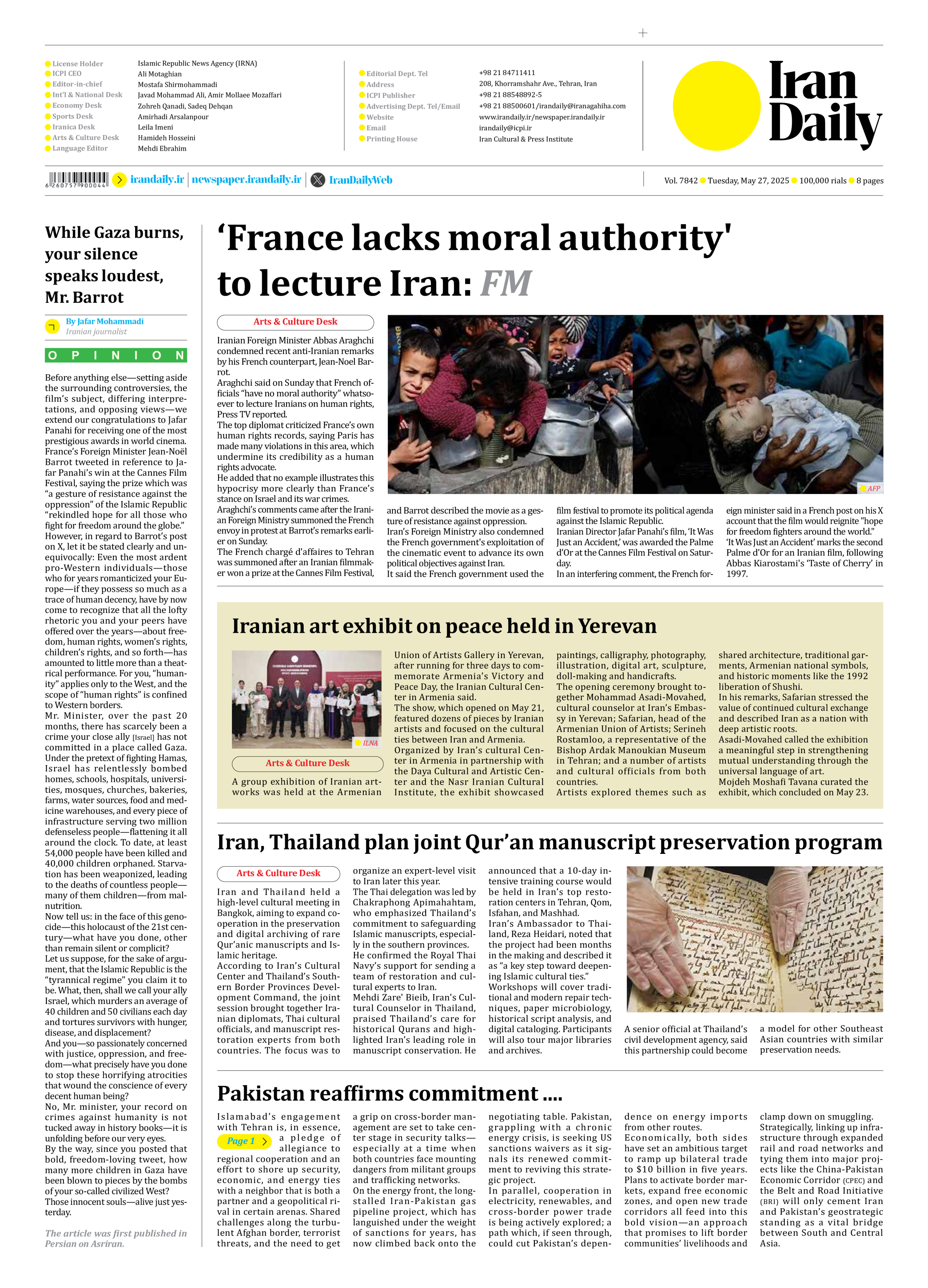
Pakistan reaffirms commitment ....
Page 1
Islamabad’s engagement with Tehran is, in essence, a pledge of allegiance to regional cooperation and an effort to shore up security, economic, and energy ties with a neighbor that is both a partner and a geopolitical rival in certain arenas. Shared challenges along the turbulent Afghan border, terrorist threats, and the need to get a grip on cross-border management are set to take center stage in security talks—especially at a time when both countries face mounting dangers from militant groups and trafficking networks.
On the energy front, the long-stalled Iran-Pakistan gas pipeline project, which has languished under the weight of sanctions for years, has now climbed back onto the negotiating table. Pakistan, grappling with a chronic energy crisis, is seeking US sanctions waivers as it signals its renewed commitment to reviving this strategic project.
In parallel, cooperation in electricity, renewables, and cross-border power trade is being actively explored; a path which, if seen through, could cut Pakistan’s dependence on energy imports from other routes.
Economically, both sides have set an ambitious target to ramp up bilateral trade to $10 billion in five years. Plans to activate border markets, expand free economic zones, and open new trade corridors all feed into this bold vision—an approach that promises to lift border communities’ livelihoods and clamp down on smuggling.
Strategically, linking up infrastructure through expanded rail and road networks and tying them into major projects like the China-Pakistan Economic Corridor (CPEC) and the Belt and Road Initiative (BRI) will only cement Iran and Pakistan’s geostrategic standing as a vital bridge between South and Central Asia.







